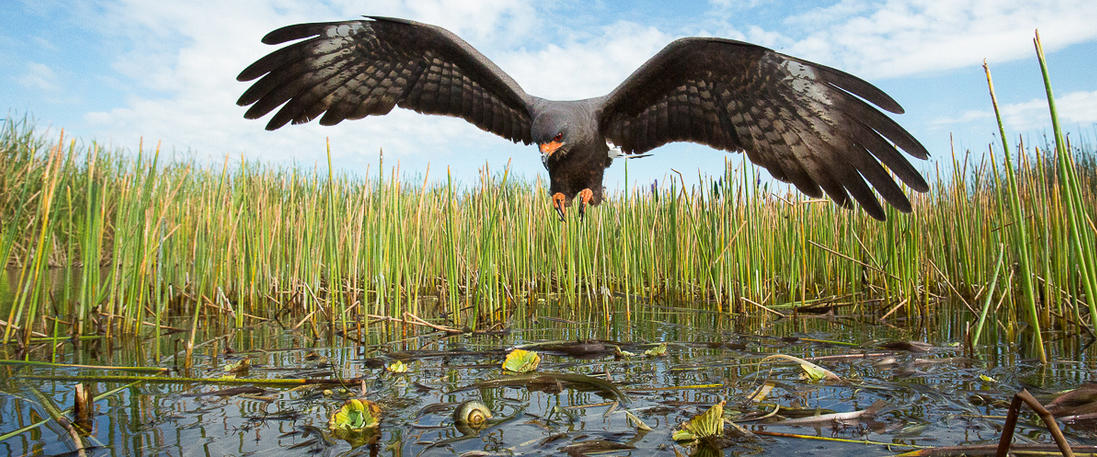Audubon scientists are saddened to share that all of the 44 active nests of the endangered Everglade Snail Kite on Lake Okeechobee were lost due to Hurricane Irma’s high winds and high rainfall, according to the University of Florida. Lake Okeechobee, Florida's largest lake, is a stronghold for the species found only in the Sunshine State. Post-Irma assessments of the Lake indicate that many adults and juveniles in the area rode out the storm and survived, but sadly, nests with eggs or flightless babies perished.
Before Irma, there had been only about 130 nests in Florida this year, so losing 44 new nests ended a poor breeding season on an even worse note. This year’s nesting numbers were a far cry from last year’s 800+ nests and reflect that about 75 percent of the population did not even attempt to nest this year. Audubon scientists suggest that the low nesting numbers were related to an extraordinarily dry spring in Florida, meaning nesting in 2017 was harmed by both excessively dry and wet events.
The Everglade Snail Kite is one of a handful of species used to indicate the health of the Greater Everglades Ecosystem- making it a top conservation priority for Audubon. As restoration efforts continue, Audubon will fight to maintain water levels in Lake Okeechobee (and all of Florida) that are not too dry or wet. Due to lack of water storage capacity in the region, Lake Okeechobee water levels continue rapidly rising from storms which likely will drown out miles and miles of plants and habitat. Kites rely on apple snails to feed their young, and snails cannot survive without plants. When the Lake rises or falls too quickly, Kite nests can also be abandoned- leaving eggs or flightless chicks to drown or starve to death.
Related: See One of the World’s Coolest, Most Specialized Raptors in Action
In addition to fighting for improved habitat for Everglade Snail Kites, Audubon will continue protecting our two sanctuaries on the Lake to preserve the marshes that make up some of the most productive habitat in the Greater Everglades Ecosystem. With the right conditions and good Lake management, Audubon remains hopeful that next year's nesting efforts will improve.
Media contact: Sean Cooley, scooley@audubon.org or (850) 999-1030.





